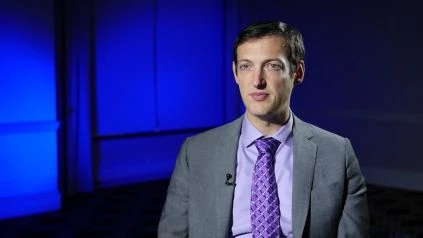Joshua Bauml, MD of the University of Pennsylvania discusses the next generation sequencing assays that will allow more targeting in specific patients. A lot is known of targeted therapies for EGFR, ALK even ROS1. However, with the next generation sequencing assays, smaller and smaller groups of patients with molecularly distinct form of lung cancer can be identified. These groups of patients may respond better to targeted therapies rather than chemo.
One of the most common genetic operations not thought of for lung cancer is BRAF. It is known the the BRAF V600E mutation can occur to patient population with lung cancer. And, interestingly enough, this BRAF mutation only occur to patients who have found to have smoking history very distinct from other genetic operations.
Whats been observed right now is that both dabrafenib and dabrafenib trametinib have significant activity in this patient population. In fact, dabrafenib trametinib is already FDA approved for the treatment of BRAF V600E mutant non-small cell lung cancer. Response rate is in the order of 60% and although the toxicity profile is something that shouldnt be ignored, the response rate alone will surely make better outcomes for the patients.

